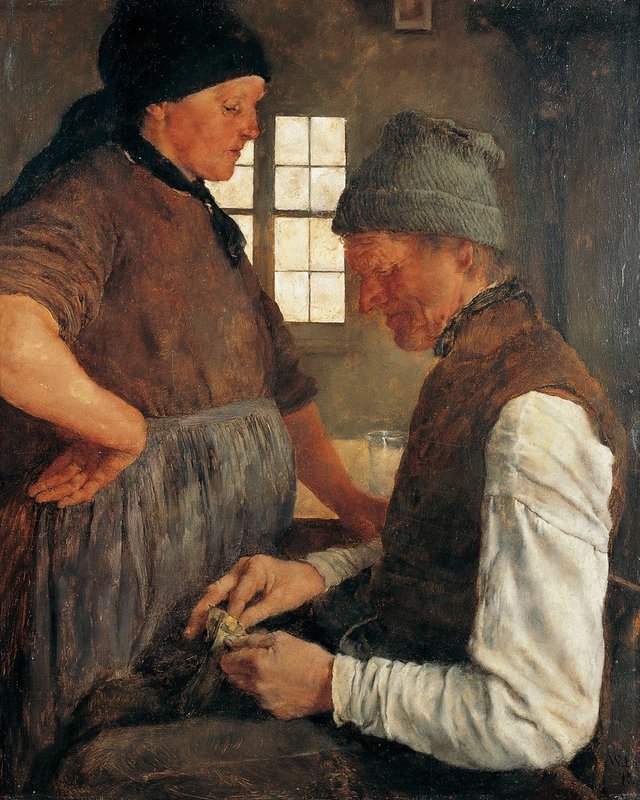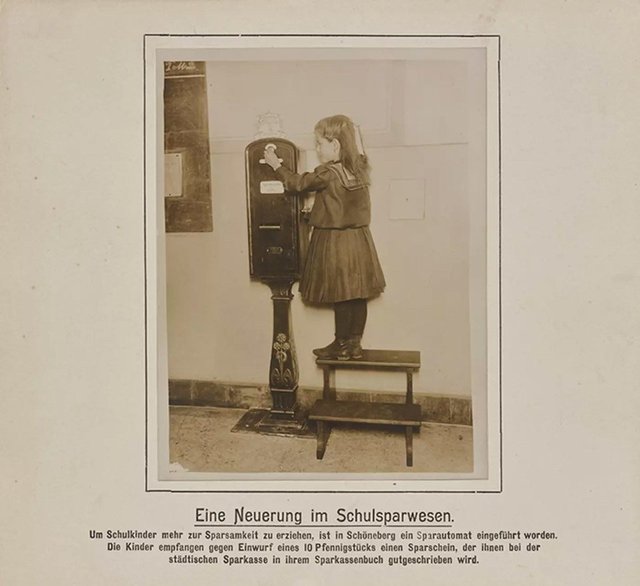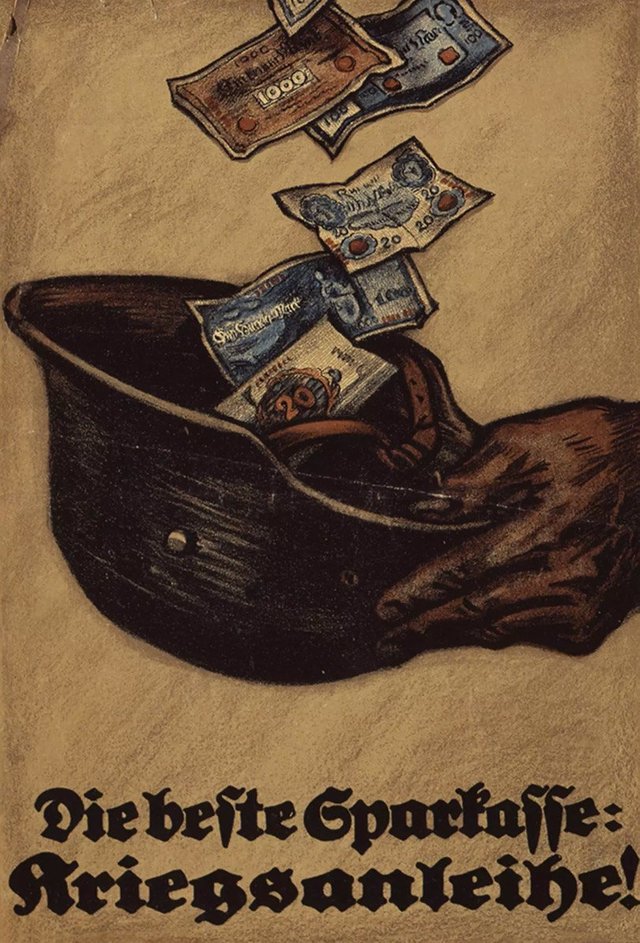Why are Germans obsessed with saving money and saving it?
The Germans have long been known for being a thrifty and thrifty people committed to saving whatever money they had in good and bad, but what was the source of this fame?

An exhibition at a museum in Berlin entitled "Saving a German Virtue" was to explain the history and story behind this "national" obsession with the economy. But it seems that everyone does not see this propensity to save as a virtue, which has been the place of much of the jokes that have beset this people over the years. It has also extended to the German government, which enacted strict policies with respect to tax laws and surplus production and trade, So much so that the United States and the International Monetary Fund (IMF) have given it a great deal of control over some of the economic problems experienced by some European countries.

A painting entitled "The Egg in the Nest" about saving from creativity (Wilhelm Lipple) in 1877 - Photo: Museum Von der Heydt
Whatever the view of the Germans' inclination to save and save, this custom was not an accidental incident or a spontaneous event.
This exhibition in Berlin shows that over the past 200 years, the declarations and proclamations of successive German banks and governments have highlighted and emphasized the importance of saving and saving money as a form of guarantee for the future, laying the foundation for what later became the root of German national identity and popular mindset. .

The lobby of a German savings bank; a painting by Albert Keckbusch in 1894 - Photo: Historisches Archiv der Berliner Sparkasse
These various types of declarations, messages and messages have encouraged and encouraged people to prepare for the difficult day they would need their savings to buy war bonds to help push the war forward and to buy the various bonds for the reconstruction of the country after two world wars .
Be a good citizen:
The idea was centered on the qualities of a good, responsible and conscious citizen who provides some of the money he earns to help himself and his family in times of hardship as part of the public benefit that benefits the community. This idea was first planted in the national mindset earlier in the past, Early 19th century.
Banks began sending missions to schools to educate children about saving and saving very early in life. It did not take long for the state to follow suit and follow the example of banks, which led to a huge explosion in the number of savings banks in the early 19th century.

Saving and saving fund for schoolchildren in Berlin in 1910 - photo of the German Historical Museum
"The government quickly noticed that savings banks were serving multiple purposes simultaneously," said Robert Moshala, curator and curator of the museum. "On the one hand, it could have been used to prevent the spread of poverty among the community, Ensuring the control of social conditions, and on the third serve the need of the state money after the wars that were left in the case of destruction every time.
Savings in good or bad:
The concept of saving and reserve has always been linked to the difficult times in Germany, where the Germans were encouraged to buy war bonds to help the country during the First World War, and the savings and savings mentality helped to overcome the crisis of the post-World War I depression and inflation, Most savings were cleared in 1923, when the German currency became worthless.

An image and a publication dated 1917-1918 encouraging people to invest in bonds of war - a picture of the German Historical Museum

A poster in an exhibition in 1938 included the following phrase: "Those who work and save preserve the German tradition" - photo of the German Historical Museum
In the post-World War II era, bank announcements began to change to keep pace with changing new lifestyles. As of the 1970s, advertising promoted savings not as a national or national duty but as a habit of enabling owners to own valuable things or make a comfortable holiday. .
Even with low interest rates in recent years, the German people did not usually change their savings and savings. "The German people have always maintained the savings habit at high levels over a long period of time, Economic and political developments, not inflation, wars, global economic crises or very low interest rates. "
"For many in the country," says Machala, "staying civilized is a goal that needs to be preserved at all costs."
__________________________________________________________
Sources


Thanks for sharing this post.
Happy to see this